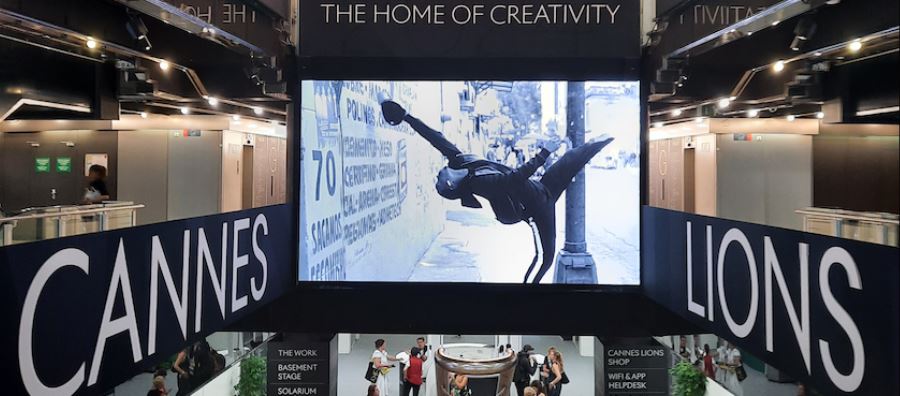The last day of the Cannes Lions Festival of Creativity started on an optimistic note, giving the audience in the Lumière Hall a reminder of the phenomenally successful comedy Barbie. Ynon Kreiz, chairman and CEO of Mattel, who won the Entertainment Person of the Year award at the Festival of Creativity, spoke about the making of the film that cemented Mattel's shift from toy manufacturer to entertainment industry giant.
"We didn't want to make the movie to sell more dolls. From the beginning, we wanted it to be a strong cultural and social moment," Kreiz said. The creation of a Barbie movie was discussed for a long time, but only moved forward with its arrival. The company regained the rights to it, and Kreiz met with Margot Robbie three weeks after he took the scepter at the group. He trusted her vision as much as that of director Greta Gerwig, who hadn't made a big commercial film until then.
They all wanted to underscore the mission of the Barbie brand - to promote the infinite potential of any girl. And Mattel signed on to the creative vision, even if it was uncomfortable at times. "When you read in the script that Barbie is a fascist, Mattel represents the worst of American corporations and its CEO is a chauvinistic jerk, it takes a while to absorb," Kreiz laughed, adding. "But we don't mind making fun of ourselves. The film lays out on the table all of our problems, which we gradually worked out. When you trust the creative geniuses, it's like magic."

Cold Shower
But after a promising start came a bit of a cold shower. If $750 billion a year is invested in campaigns, only six per cent of them are effective, pointed out John Hegarty, who has helped launch agencies such as Saatchi & Saatchi and TBWA, among others, and is now co-founder and creative director of The Garage Entertainment. He discussed the causes and possible remedies with Orlando Wood, Group Chief Innovation Officer at System1.
"Technology helps target content to people who are already interested in it. And it's the same with ad targeting. Their concept looks like that too. Most ads already count on interest, instead of generating it, we've forgotten how to do it," Wood said.

Both said the industry needs a revolution similar to the one it experienced in the 1960s. Rather than the role of the salesman, who focuses only on performance and sales, advertising should shift to the character of the "showman" who engages people and creates a relationship with them based on truth.
Hagerty and Wood then jointly presented a series of workshops to help with this. Called Advertising Principals Explained - a.p.e., they were accompanied on stage by a gorilla strikingly similar to the one in the legendary Cadbury advert that appeared on screens before the shows throughout the week.
How to get out of this
But of course, there was no shortage of tips and tricks on how to turn the unhappy situation around. And their form was clear when Hagerty declared that "we all like number lists".
Three tips for brand transformation were presented by Lisa Smith of Jones Knowles Ritchie, the agency behind the successful Burger King rebrand. "First - involve as many stakeholders as you can in the transformation. Second - educate everyone in the company on the story of the brand assets so they understand why and how they are used. Third - systematize everything. It may be boring, but consistency is central to success," Smith calculated.

And her own top five tips for "making the impossible possible" were added by Danilo Boer of FCB, the agency that has helped the beer brand to a successful association with sport and campaigns such as McEnroe vs McEnroe. "Find a timeless meaning you can associate the brand with. Take inspiration from the culture and moments you can use. Don't be afraid of the new, you'll be original. Create content people want to see. And find great partners to help you do that," Boer concluded.
Source: mam.cz

